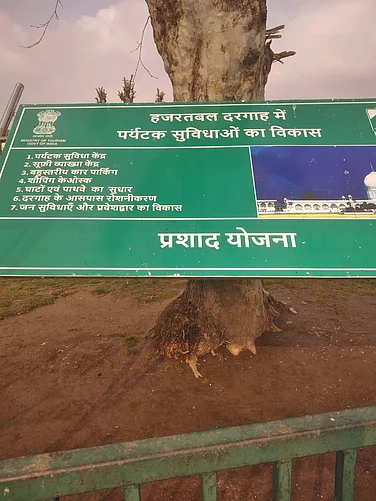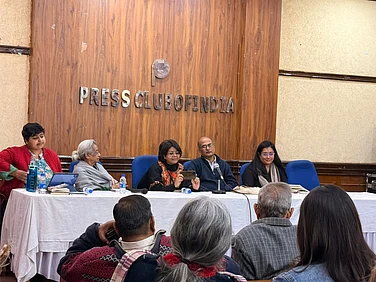IT'S a trip no one wishes to talk about. Which is surprising, given its significance. For, by all reckoning Mossad, the Israeli secret service, probably is the most effective anti-terrorist strike force in the world. A fact Home Minister L.K. Advani readily acknowledged before he left for his first-ever official visit to Tel Aviv in June this year. But despite the emerging new equations with that country, eyebrows did go up when a team of six Israeli security personnel recently landed in Delhi and proceeded to Kashmir. After all, should India take the help of a country not friendly with the Arabs, and that too in security matters?
The reaction of Indian officialdom was cagey, to say the least. A meeting, which could well have been considered routine, became a somewhat clandestine one. When the Times of India put out a front-page story last week saying the Israeli team was here at Advani's invitation, the home ministry put out a prompt denial. The two-line statement said: "The government denies reports appearing in a section of the media that Home minister L.K. Advani had invited an Israeli team of counter-terrorism experts to the country. It's officially clarified that no such team has been invited by the home minister." The statement was careful to emphasise that the team may have been invited by the government of India but not the home ministry.
While an official of the Ministry of External Affairs (mea) said that given the sensitivity of the mission - considering India's good relations with the Arab nations - the visit had been played down, an army spokesman claimed they had no information about the delegation. Well placed sources, however, say the team, headed by Eli Katzir of the counter-terrorism combat unit of the Israeli pmo, included army and military intelligence officials. The question now is what sort of assistance could be required for the Indian armed forces who are already quite familiar with the 'ground' in the Valley?
Though officials remain tightlipped, some members of the intelligence community say the Israeli team had a specific purpose: to impart 'some technical expertise'. The expertise comes specifically in the form of being trained to handle the deadly improvised explosive devices (ieds) that've claimed many Indian lives in the last year or so. "Our assessment is that something needs to be done. The fight against militants isn't just about courage and guts. We're up against some highly sophisticated warfare and need better technological backup," says an intelligence official. Recently, Kashmiri militants, making effective use of ieds, have struck serious blows including killing a brigadier in August and many officers and jawans during the last year.
Normally, such a visiting delegation could have been considered routine, what with foreign teams and experts frequently interacting with Indians and vice versa. The Israelis coming into the picture also reflects the bjp's long-standing policy of improving ties with Israel, which was reinforced by Advani's highly successful Tel Aviv visit where, in an unprecedented step, the normally secretive Mossad pulled out all stops in demonstrating their wherewithal for the benefit of the visiting Indian dignitary. Then Advani had called for closer Indo-Israeli cooperation on all security matters. The Israelis had in turn told the home minister that their help would be limited to "information transfer and instructions in operational methods."
So just what did the team do here? Well-placed sources say the Israeli delegation did a quick recce of the Valley, studying the terrain, looking at logistics and, in the words of an expert, had "a quick exchange of ideas". Then they left - as swiftly as they had come. Government officials say that opposition criticism about a developing New Delhi-Tel Aviv axis - which goes against time-tested Indian foreign policy imperatives - would largely be unfounded. "After all, it's worth remembering that it was the Congress government that established diplomatic ties with Israel in '92," says an official. But the moot point is whether this is the beginning of more such exchanges between the two countries. Time will tell.


























